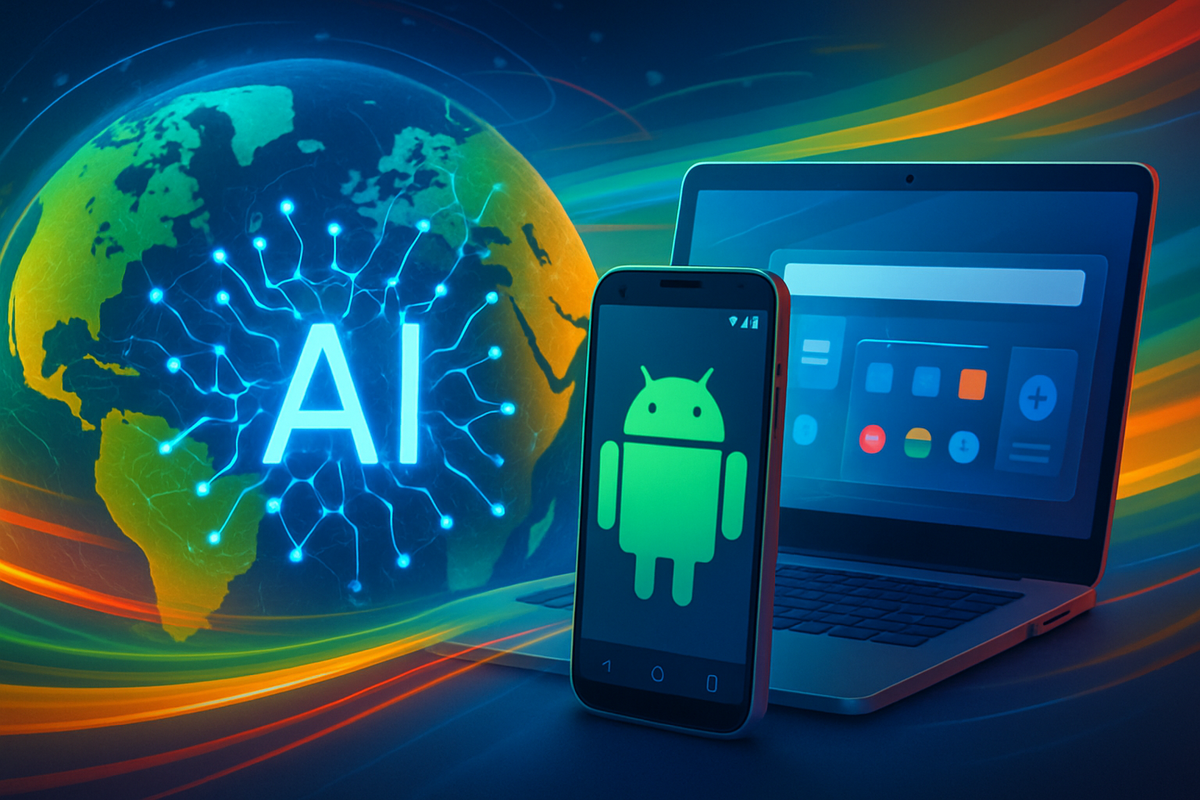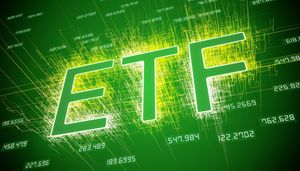
In a strategic double-header, Alphabet (NASDAQ: GOOGL) subsidiary Google is making aggressive moves to reshape the global technology landscape. On September 23, 2025, the tech giant announced a significant expansion of its more affordable "AI Plus" subscription plan, extending its reach to over 40 additional countries, primarily across emerging markets. This initiative aims to democratize access to advanced artificial intelligence tools, bringing sophisticated capabilities within reach of millions more users worldwide. Simultaneously, Google is intensifying its efforts to bring a full-fledged Android experience to desktop PCs, forging a critical collaboration with semiconductor titan Qualcomm (NASDAQ: QCOM) to challenge the entrenched dominance of traditional operating systems.
These simultaneous pushes represent a profound strategic pivot for Google, poised to intensify competition across the AI subscription market and the personal computing sector. The expansion of AI Plus is set to accelerate global AI adoption, particularly in regions experiencing rapid digital transformation, while the Android-to-desktop initiative signals a bold challenge to the long-standing duopoly of Microsoft's (NASDAQ: MSFT) Windows and Apple's (NASDAQ: AAPL) macOS. The immediate implications suggest a more integrated, AI-powered future where Google seeks to solidify its ecosystem dominance from the smallest smartphone to the most powerful desktop, potentially altering user interaction with digital tools and services on a global scale.
A Deep Dive into Google's Strategic Expansion
Google's AI Plus plan, initially rolled out in select markets, has now expanded its availability to over 140 countries, with the latest wave targeting emerging economies in Africa, Asia, and Latin America. This aggressive expansion is underpinned by a highly competitive pricing strategy; while the U.S. market sees the plan at $19.99 per month, many of the newly added regions will benefit from a significantly lower price point, averaging around $5 to $6 per month, often accompanied by introductory discounts. This affordability is designed to attract a vast new user base, from individual creators and small businesses to developers, fostering loyalty and gathering diverse data sets crucial for refining Google's sophisticated AI models.
Subscribers to the AI Plus plan gain access to a powerful suite of AI-powered tools. This includes Gemini Advanced (powered by Gemini 2.5 Pro), offering cutting-edge AI capabilities and deep research functionalities. Creative professionals will benefit from higher usage and editing limits for "Nano Banana," Google's viral image generation and editing model, alongside access to Veo 3 Fast (a video generation tool) and other creative filmmaking and image creation tools like Whisk and Flow. Beyond creative endeavors, the plan integrates Gemini features directly into popular Workspace applications such as Gmail, Docs, and Sheets, and provides enhanced usage limits for NotebookLM, a research and writing assistant. Completing the package, users receive 200 GB of shared cloud storage across Google Drive, Gmail, and Google Photos, with the plan shareable among up to five family members, though AI features remain exclusive to the primary account holder. The success of "Nano Banana" in boosting Gemini app usage is cited as a key driver for this strategic, wide-ranging rollout.
Concurrently, Google is making significant strides in its ambitious project to bring a robust Android experience to desktop PCs. This initiative centers on unifying ChromeOS and Android into a single, cohesive operating system, with ChromeOS being built upon Android's underlying technology. The ultimate goal is to seamlessly integrate Google's entire Android AI stack, including advanced Gemini models and Google Assistant, directly into the personal computer environment, offering a truly converged experience.
Substantial progress has been evident with Android's native desktop mode, featuring "desktop windowing" now available in developer preview with Android 16 QPR1 Beta 2, released in June 2025. This functionality allows users to connect their Android phone to an external display via USB-C, effectively transforming it into a PC-like environment. The interface boasts a Windows-style taskbar, a start menu-like app drawer, resizable application windows with drag-and-snap capabilities, and a status bar. While a stable release for tablets running Android 16 is anticipated later in 2025, a full desktop mode functionality for phones is projected to roll out with Android 17 in 2026 or a subsequent quarterly update. This initiative is bolstered by a pivotal collaboration with Qualcomm (NASDAQ: QCOM), whose CEO Cristiano Amon has lauded an early version of the software as "incredible," emphasizing its potential to deliver on the vision of mobile and PC convergence. This partnership implies that future Android-based PCs will heavily leverage Qualcomm's ARM-based Snapdragon chips, such as the Snapdragon X line, promising enhanced efficiency, performance, and native execution of Android applications, a direct challenge to x86 architecture dominance.
Redefining the Tech Landscape: Winners and Losers Emerge
Google's aggressive dual strategy is poised to redraw battle lines across several critical sectors of the technology market, creating clear winners and presenting significant challenges for established players. At the forefront, Alphabet (NASDAQ: GOOGL) itself stands as a monumental winner. The AI Plus expansion to emerging markets not only democratizes its advanced AI tools but also significantly broadens its global user base, fostering loyalty and integrating Google's AI deeper into daily productivity and creative workflows for millions. The Android-to-desktop initiative further solidifies Google's ecosystem dominance, extending its ubiquitous mobile operating system into the traditional PC realm and potentially increasing its overall market share in computing devices.
A major beneficiary of the Android desktop push is Qualcomm (NASDAQ: QCOM), which emerges as a pivotal hardware partner. Its Snapdragon ARM chips, particularly the Snapdragon X series, are set to power the new generation of Android PCs. This collaboration provides Qualcomm with a significant entry into the lucrative PC processor market, where it aims to carve out a substantial share currently dominated by x86 architecture. This move represents a strategic diversification beyond its traditional mobile chipset business. Furthermore, diversified PC manufacturers such as Samsung (KRX: 005930), Lenovo (HKG: 0992), HP (NYSE: HPQ), and Acer (TWSE: 2353), which have existing relationships with Google (e.g., for Chromebooks) or Qualcomm, are well-positioned to capitalize on the new Android PC market segment. Their agility in adapting to new operating systems and ARM-based hardware could allow them to tap into a fresh wave of demand for integrated, efficient computing devices.
On the other side of the ledger, Microsoft (NASDAQ: MSFT) faces a dual challenge. In the AI subscription market, its Copilot service will contend with Google's aggressively priced AI Plus plan, especially in consumer-focused segments and emerging economies. More significantly, the rise of Android PCs directly threatens Windows' nearly 80% market share in the personal computing sector. While Microsoft has its own Windows on ARM initiative, Google's direct, optimized Android desktop experience, backed by a vast app ecosystem, presents a formidable new competitor. This could potentially impact Microsoft's revenue from operating system licenses. Similarly, Apple (NASDAQ: AAPL), while less directly impacted in the x86 PC space, could face indirect competition as consumers gain more options for powerful, efficient ARM-based desktop computing outside of its own ecosystem.
The semiconductor giants Intel (NASDAQ: INTC) and AMD (NASDAQ: AMD) are also likely to experience headwinds. As the long-standing leaders in x86 architecture for PCs, the growing adoption of ARM-based Android PCs, promising superior power efficiency and seamless mobile integration, could divert sales away from their core laptop and desktop processor businesses. While a complete overhaul of the market is not imminent, a growing segment of Android PCs powered by Qualcomm chips will inevitably eat into their market share and revenue. Finally, PC hardware companies that are less adaptable, heavily invested solely in the Windows/x86 ecosystem, and slow to embrace alternative operating systems or ARM architecture could face significant losses, struggling to compete with manufacturers offering the new Android-based devices.
The Broader Canvas: Reshaping Industry Trends and Ecosystem Dynamics
Google's dual offensive—democratizing AI and extending Android to the desktop—is not merely incremental but represents a foundational shift that aligns with and accelerates several major industry trends, creating significant ripple effects across the tech landscape. Foremost among these is the democratization of AI. By expanding its AI Plus plan to over 40 emerging markets with an exceptionally affordable price point (around $5-$6 per month), Google is making powerful AI capabilities, including Gemini 2.5 Pro and advanced creative tools, accessible to millions. This move accelerates global AI adoption and embodies a broader trend where the cost of innovation is plummeting, enabling a wider array of individuals and businesses to leverage sophisticated AI.
This strategy also underscores the drive towards ubiquitous AI integration. Google is aggressively embedding AI, particularly its Gemini models, across its entire ecosystem, from Search and Workspace to Android and Chrome. The vision of an "agentic browser"—where Chrome, powered by Gemini, proactively assists users—illustrates a future where AI is a constant, context-aware companion, capable of acting across digital and physical domains. This positions AI as an indispensable layer for next-generation computing experiences.
Crucially, the push to bring Android to the desktop, specifically through the strategic merger of Android and ChromeOS, signals Google's most determined effort yet towards mobile-PC convergence. This initiative aims to establish a "common technical foundation" for both mobile and desktop environments, promising seamless cross-device experiences and leveraging the vast Android application ecosystem on traditional PCs. Qualcomm (NASDAQ: QCOM) CEO Cristiano Amon's enthusiastic endorsement of this "incredible" convergence vision highlights the industry's belief in this unified computing paradigm. This also significantly contributes to the rise of ARM in PCs, as the collaboration with Qualcomm inherently boosts the momentum for ARM-based processors, which offer advantages like lower cost and extended battery life over traditional x86 architecture.
The ripple effects of these strategies are profound for competitors and partners alike. Microsoft (NASDAQ: MSFT) faces a direct challenge to its Windows operating system, which held nearly 80% of the PC market in 2025. Google's unified Android-ChromeOS on ARM could present a compelling, low-cost alternative, particularly for younger users already familiar with ChromeOS. In the AI space, Google's affordable AI Plus plan intensifies competition with Microsoft's Copilot and Office 365. Apple (NASDAQ: AAPL), while dominant in its own ecosystem, could see Google's convergence efforts challenge its seamless iPhone-MacBook integration, as Android users gain a similar level of cross-device continuity. Other AI providers, such as OpenAI, will also feel pressure to innovate on pricing and features as Google democratizes advanced AI.
For partners, Qualcomm (NASDAQ: QCOM) gains a significant opportunity to expand its semiconductor business into the PC market, diversifying its revenue streams. Android OEMs, like Samsung (KRX: 005930), will find new avenues for product diversification and hardware innovation. Most importantly, developers will see immense opportunities to leverage their existing Android app knowledge for a broader desktop audience and to create more intelligent, AI-powered applications across Google's expanding ecosystem.
However, Google's expanding influence also brings regulatory and policy implications. The deepening integration of Google's ecosystem across mobile, search, advertising, and now potentially desktop PCs, could attract heightened antitrust scrutiny. Regulators may examine whether these integrations create unfair market advantages or increase user lock-in. Furthermore, the pervasive integration of "agentic AI" and Gemini's ability to access and analyze browsing data raise significant data privacy and AI ethics concerns. Regulatory frameworks like the EU's AI Act are already addressing these issues, demanding transparency and safety. Google has committed to adhering to the EU's "Code of Practice" for AI, though it acknowledges potential impacts on AI development speed. The growing emphasis on digital sovereignty will also push governments to seek greater control over AI models and data processing within their borders.
Historically, Google's desktop push with Android draws parallels to Microsoft's past struggles to gain traction in the mobile market with Windows Phone. However, Google starts with the immense advantage of a vast Android app ecosystem and developer community. It also echoes Apple's successful blueprint for tightly integrated hardware and software ecosystems. Ultimately, Google's current AI integration is comparable to past transformative platform shifts like the internet or mobile, with the company racing to establish an early lead in democratized AI access and intelligent user experiences across all computing form factors.
The Road Ahead: Navigating Convergence and AI Dominance
Google's ambitious dual strategy—democratizing AI access and unifying Android across computing form factors—sets the stage for a transformative period in the technology market from late 2025 into 2026 and beyond. In the short term, we anticipate a rapid acceleration in global AI adoption, particularly driven by the expanded AI Plus plan in emerging markets, offering advanced capabilities like Gemini 2.5 Pro at an accessible price point. Concurrently, the first wave of Android-powered PCs, likely leveraging Qualcomm's Snapdragon chips and initially targeting budget and educational segments, is expected to hit the market. ChromeOS itself will undergo a significant evolution, seeing deeper integration of Android's underlying technology, leading to enhanced performance, faster updates, and embedded Gemini AI capabilities. This period will also see ubiquitous Gemini AI integration across Google's vast product portfolio, from Android phones and wearables to Chrome and Workspace applications, alongside a surge in consumer AI hardware innovations.
Looking to the long term, Google's vision points towards a future of true operating system convergence, where the traditional distinctions between mobile and desktop computing blur, potentially leading to a single, unified Google OS brand. By 2026, Google's Gemini roadmap envisions a "single brain for every data type," with Gemini 3 promising real-time video understanding and increasingly sophisticated AI agents acting as "teammates." This could redefine the PC landscape, establishing Android-powered devices as a new category of efficient, AI-centric personal computers that offer a compelling alternative to traditional Windows and macOS systems. We can also expect a wider array of hardware form factors, including foldables and hybrids, optimized for this unified operating system, potentially driving increased enterprise adoption for cost-effective collaboration.
However, realizing this vision will require Google to navigate several strategic pivots and challenges. A critical hurdle will be app ecosystem optimization, convincing developers to adapt existing Android applications for a desktop environment, addressing UI layouts, multi-window management, and overcoming the prevalence of ads in mobile apps. User acceptance will also be paramount, as Google must shift perceptions of Android as a mobile-only OS and ChromeOS as a limited browser-based platform. Ensuring hardware compatibility across a diverse range of devices and maintaining a robust security posture for a deeply integrated platform will be ongoing efforts. Furthermore, balancing the inherent simplicity of ChromeOS with the feature richness of Android will be a delicate act. Google will also need to contend with aggressive competitive responses from Microsoft, particularly regarding Windows on ARM and enhanced AI features.
Despite these challenges, the market opportunities are substantial. The affordable AI Plus plan presents an unparalleled chance to democratize AI globally, fostering new user bases and local innovation. Android on PC creates a significant new market segment, particularly in educational and budget-friendly computing. This also expands the vast Android developer ecosystem to a new platform and accelerates the broader shift towards ARM-based processors in the PC market, benefiting Qualcomm. Google can offer a highly integrated, continuous user experience across mobile and desktop, setting new standards for AI-driven productivity and accessibility. Conversely, market challenges include overcoming the entrenched dominance of Microsoft and Apple, addressing the existing application gap for desktop-optimized Android apps, managing user inertia, and continuously evolving its AI monetization strategies and ethical AI development.
The Final Reckoning: Google's Bold Play for the AI-First Era
Google's latest strategic maneuvers, encompassing the global expansion of its affordable AI Plus plan and a concerted drive to bring Android to the desktop in collaboration with Qualcomm (NASDAQ: QCOM), represent a profound and calculated bid to dominate the evolving landscape of artificial intelligence and personal computing. These actions are not merely incremental updates but fundamental shifts designed to democratize AI access globally while simultaneously challenging the long-standing duopoly in the PC operating system market.
Moving forward, the market is poised for significant transformation. The AI Plus plan will undoubtedly intensify competition in the AI services sector, pushing rivals to innovate on pricing and features, while also expanding the overall global user base for advanced AI. The Android on desktop initiative, powered by Qualcomm's ARM-based Snapdragon chips, is set to create a new category of efficient, AI-infused personal computers. This will directly disrupt established players like Microsoft (NASDAQ: MSFT) and Intel (NASDAQ: INTC), forcing a re-evaluation of strategies across the entire PC ecosystem. Qualcomm, in particular, stands to benefit immensely as it diversifies its revenue streams beyond mobile into the lucrative PC processor market.
The lasting impact of these strategies underscores Google's ambition to solidify its position as a preeminent force in both AI and cross-platform computing. The widespread adoption of AI tools, fueled by Google's affordability and deep integration, will foster innovation and potentially give rise to entirely new industries globally. The convergence of mobile and desktop computing, driven by a unified Android experience, promises to reshape how users interact with their devices, ushering in a more intelligent, seamless, and efficient computing paradigm. Google's substantial capital expenditures, with an expected $85 billion earmarked for AI infrastructure in 2025, reflect its unwavering commitment to this vision. Analysts project Alphabet (NASDAQ: GOOGL) to achieve approximately 18% earnings growth in 2025, with AI already boosting engagement and ad revenue across Search and YouTube, alongside robust growth in its Cloud services.
For investors, the coming months will be critical. It is imperative to closely monitor the subscription growth rates of the AI Plus plan, especially its penetration into new markets and its ability to convert users into paying subscribers. On the Android desktop front, key indicators include the developer community's response and the rate of application optimization for the new platform, as a vibrant app ecosystem is paramount for long-term success. Investors should also watch for hardware partnerships and product launches from original equipment manufacturers (OEMs), alongside early market share gains against Windows and macOS. Finally, continuous tracking of Google's overall capital expenditures and the return on investment from its aggressive AI infrastructure spending, coupled with close observation of competitive responses from Microsoft and Apple, will be essential. Alphabet's stock, currently trading at a reasonable valuation and backed by strong financials and clear AI leadership, remains a compelling long-term core investment, poised for significant growth driven by these strategic AI and platform convergence initiatives.
This content is intended for informational purposes only and is not financial advice





